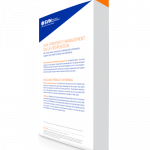What Makes an Exemplary Property Manager
According to Rory Williams, Managing Partner at SVN/Demetree Real Estate Services
Owning a property designed to be leased or rented is a significant investment of time and money. These properties—including retail centers, office or industrial complexes, self-storage facilities and homes—also carry a number of inherent challenges. What if I can’t get a tenant? What if my tenant is behind in payments? How do I keep up with the maintenance demands of the property?
Enter, the property manager.
Just remember, you invested a great deal into your property. How can you ensure that you have the best property manager for the job?
You can—and should—get references, check the person’s vacancy rate or ask the manager a battery of questions about tenant acquisition, maintenance, fee structure, etc. There are also personal traits you can discern by talking to a property manager. These are important markers that will help you make the right choice.
[bctt tweet=”How can you ensure that you have the best property manager for the job?”]
Look for these traits when hiring a property manager.
1. The property manager is an excellent communicator.
On the most basic level, this means he or she promptly follows up quickly on phone calls. If you leave a voicemail, and the property manager doesn’t get back to you, your tenant will probably be treated similarly. Additionally, if a property manager procrastinates, it could end up costing the property. You want a flowing pipeline of communication between all parties, so there are no misunderstandings – the root of so many conflicts with tenants. Being a strong communicator also means being transparent, upfront about everything that is going on in the working relationship.
2. The property manager is highly knowledgeable.
The industry is complex. There is much a property manager must know about the current market, screening tenants, legal considerations, preparing leases. Be sure the person you’re working with speaks with authority and conveys the clear impression of being an expert. A property manager should be able to answer questions easily about security deposits, tenant retention, rent—all facets of the business.
3. The property manager keeps the tenant relationship professional at all times.
The tenant/property agreement is a binding contract that needs to be maintained at a professional level. An exemplary property manager is trained to work with tenants on a professional, dispassionate level – as a business should operate. For this reason, the property manager is able to act as a wall of separation between property owner and tenant, relaying information and taking action as your official agent.
4. The property manager is good with numbers.
Must he or she be an accountant? Not necessarily. But again, you have a large investment hanging in the balance, so the more you reduce the margin of error, the better. A property manager should be math-savvy, able to quickly and accurately calculate your costs, extra fees, cash flows or whatever other numbers are involved in the transaction. Having additional accountant staff is an important hedge against any slips when punching out equations that affect your property. It’s also a big help at tax time. So be sure your property manager has this vital backup.
5. The property manager has appropriate resources.
A property manager should have the resources necessary to make your job easy and seamless. Accounting was already mentioned but you should also take a look at the accessibility to that accounting system and the reporting structure. If a property manager has a team of supporting individuals and the technology required for you to easily access that information, you are likely to maintain a more transparent relationship with him or her. Ask and be knowledgeable about the software capabilities to be sure you’re getting the most efficient and effective product.
To read more about property management, read our Sperry Van Ness Property Management Value Proposition here.

